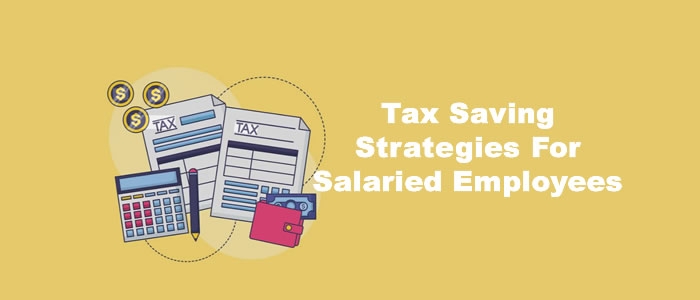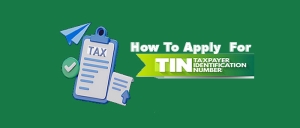
Taxes are one of the most important financial obligations for individuals and businesses. While paying taxes is a civic duty, paying more taxes than necessary is not. The goal of tax planning is to legally reduce your tax burden by taking advantage of government-approved deductions, exemptions, allowances, and smart financial strategies.
- Effective tax planning helps you
- Increase your disposable income
- Improve savings and investments
- Avoid penalties and tax audits
- Build long-term financial stability
This comprehensive guide walks you through practical tax saving strategies for salaried employees freelancers, and business owners etc.
Understanding the Basics of Tax Planning
What Is Tax Planning?
Tax planning is the acting early and legal process of arranging your financial affairs to reduce your overall tax liability. It involves strategic decision-making regarding investments, savings, and expenses to maximize tax benefits and achieve greater tax efficiency within the circles of the law. Tax planning involves:
- Understanding tax rules
- Identifying eligible deductions
- Claiming benefits offered by the government
- Planning your investments smartly
The Real Reason Why Tax Planning Matters
Good tax planning helps you to achieve the following as much as you stick on the principle of proactiveness.
- To reduces tax liability
- It is Increases take-home income
- To ensures financial discipline
- It helps avoid legal issues with tax authorities
Many people wait until the last minute to think about taxes often after salary slips, business profits, or expenses have piled up. But effective tax saving starts early.
Types of Tax Planning
1. Short-Term Tax Planning
This is done at the end of the year to reduce immediate tax burden for example last minute deductions or contributions.
2. Long-Term Tax Planning
This involves consistent investments and savings spread across the year that will help to minimize tax cost.
3. Permissive Tax Planning
This type involves using all the exemptions and deductions, available under tax laws to legally minimize tax paying of a individual employee. Permissive planning is a strategy that helps you plan your tax saving investments Using incentives such as:
- Pension contributions
- Savings schemes
- Insurance deductions
4. Purposeful Tax Planning
Optimizing your tax structure to maximize long-term benefits. Understanding these basics sets a strong foundation before diving into practical strategies.
Top Tax Saving Tips for Salary Earners
Employees have several tax-saving opportunities, especially if they understand their salary structure.
1. Optimize Your Salary Components
Negotiate for tax-friendly salary components like:
- Housing allowance
- Transport allowance
- Medical benefits
- Meal allowances
These reduce your taxable salary legally.
2. Maximize Pension Contributions
Contributions to pension or retirement plans are typically tax-deductible in many countries. These plans offer lower taxable income, help you save for the future, and may come with additional employer matching benefits.
3. Claim Insurance Premiums
Life insurance and health insurance premiums often qualify for tax deductions. These policies not only save you money but also offer financial security.
4. Deduct Educational Expenses
Certain education-related costs like professional courses may be deductible.
5. Use Health-Related Deductions
Claim Health-Related Deductions. Expenses for surgeries, medications, and special treatments are often deductible and can reduce your tax liability.
6. File Tax Returns Early
The Benefits of Filing Tax Returns Early. Submitting tax returns ahead of the deadline helps you avoid fines, identify errors, and process refunds faster. Late submission may also limit certain deductions. Salary earners who are aware of their tax benefits can save hundreds or even thousands every year.
Tax Saving Strategies for Businesses and Freelancers
Self-employed individuals, entrepreneurs, and business owners have more tax-saving opportunities than salary earners but only if they plan properly.
1. Separate Business and Personal Finances
Always keep separate bank accounts for your business income and business expenses. This helps you maintain accurate records and claim all eligible deductions.
2. Deduct Legitimate Business Expenses
Common deductible expenses include rent, utilities and internet, marketing and advertising, equipment and tools, staff salaries, and travel costs. Any expense incurred to generate business income is typically deductible, so keep thorough records of all transactions
3. Take Advantage of Asset Depreciation
Use Asset Depreciation. Depreciate business assets such as computers, vehicles, machinery, and office furniture to reduce taxable income over time.
4. Utilize Government Tax Incentives
Take Advantage of Tax Incentives. Government programs often support startups, agriculture, technology, manufacturing, and export businesses. If you qualify, these incentives can lower your taxes substantially.
5. Hire a Tax Professional
Leverage Expert Tax Advice. Navigating business taxes can be challenging. Hiring a tax professional ensures you claim every deduction, avoid audits, file properly, and structure your operations tax-efficiently. Without expert guidance, many businesses end up paying more than necessary.
Best Investment Options for Tax Savings
Some investments are specifically designed to reduce your tax burden. Choosing the right ones increases wealth while lowering taxes.
1. Retirement and Pension Schemes
Invest in Retirement and Pension Schemes These plans allow tax-deductible contributions, benefit from long-term compound growth, and ensure financial stability during retirement.
2. Tax-Exempt Government Bonds
A bond, issued by a state or local government, the interest on which is exempt from taxation. They are primarily used by municipalities to fund public projects like schools and roads, with the tax exemption making them attractive to higher-income investors.
3.Health Savings Accounts (Where Applicable)
A medical savings account offers triple benefits—your contributions reduce taxable income, your balance grows without tax, and you can withdraw funds for medical expenses tax-free.
4. Real Estate Investments
Real estate comes with key benefits rental income, mortgage interest deductions, and rising property value. It delivers tax savings while helping you build wealth.
5. Education Savings Plans
Some countries provide education savings plans that allow tax-free or tax-deductible savings.
6. Insurance-Based Investment Plans
Insurance investment plans give you life cover, savings growth, and tax benefits. Choosing the right plan boosts tax efficiency and long-term returns.
Common Tax Filing Mistakes and How to Avoid Them
Errors during tax filing can cause overpayment, penalties, and slow refunds so avoiding them is as important as claiming your deductions. Below are common mistakes and how to avoid them.
1. Poor Record Keeping
If you don’t keep receipts or invoices, you won’t be able to claim deductions. Use tools like apps, spreadsheets, or accounting software to track everything.
2. Missing Eligible Deductions. Many taxpayers forget claims such as:
- Charitable donations
- Medical bills
- Insurance premiums
- Business expenses
- Review tax rules yearly.
3. Filing Late
Penalty charges and interest can easily add up. File early and save.
4. Incorrect Personal Details
A wrong tax ID, name, or bank account can delay refunds.
5. Ignoring New Tax Rules
Tax laws change frequently. Stay updated or consult a professional.
6. Not Declaring All Income Sources
With digital banking and employment records, tax authorities can track all income. Not declaring it may result in audits, penalties, or legal issues. Filing correctly ensures compliance and reduces tax liability.
Year-End Tax Planning and Long-Term Strategies
1. Review Your Financial Year
Before the year ends, make sure to check for unclaimed deductions, verify all expenses, and review your investment portfolio.
2. Top Up Pension Contributions
Increasing contributions before year-end boosts tax savings and retirement funds.
3. Make Charitable Donations
Charities approved by the government qualify for tax relief.
4. Clear Medical Bills Before Year-End
Ensure all medical expenses are properly documented.
5. Rebalance Your Investments
Shift your funds into more tax-efficient assets when needed to maximize savings
6. Plan for the Next Year Early
Effective tax planning is an ongoing process not something you do once a year. Start early by setting tax goals, automating your savings, and consulting financial advisors.
Conclusion: Tax saving is not about evading taxes it's about managing finances smartly and legally. By understanding deductions, investing wisely, and staying organized, individuals and businesses can significantly reduce tax burdens while improving overall financial health. This article guide gives you a complete roadmap to saving more money, avoiding penalties, and building long-term wealth through smarter tax planning.



 .jpg)



 Workplace Soft Skills That Make You Stand Out in the Business World
Workplace Soft Skills That Make You Stand Out in the Business World  Essential Certifications And Education For Advancing In Business
Essential Certifications And Education For Advancing In Business  Best Investment Opportunities To Grow Your Money
Best Investment Opportunities To Grow Your Money